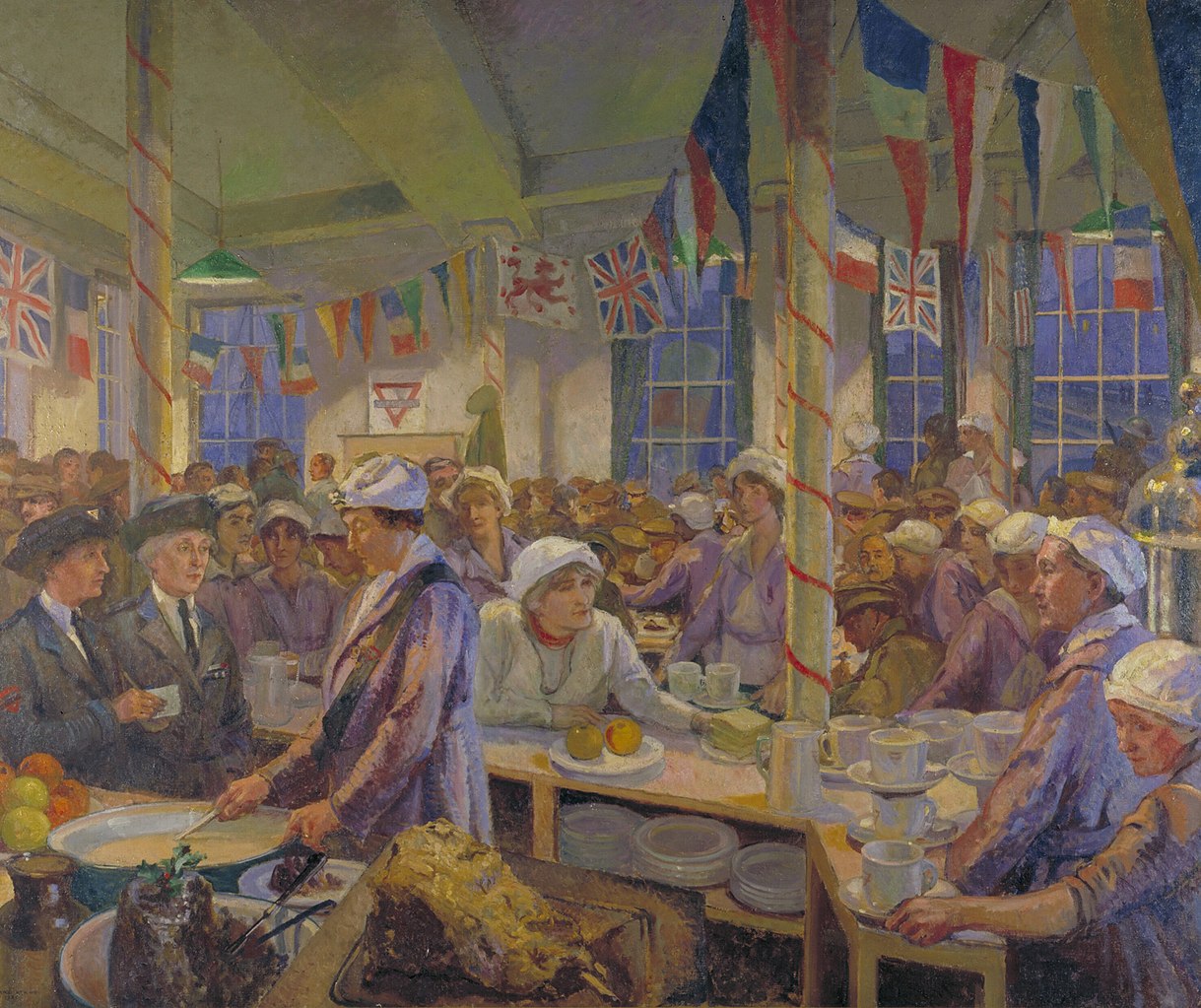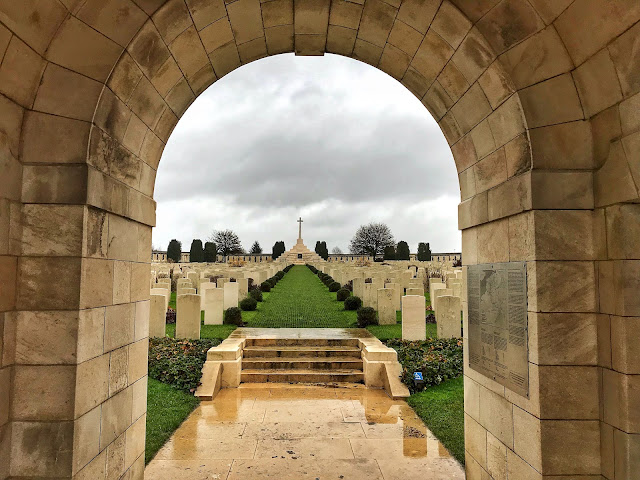'The Chief Festival of the Home': Wartime Christmas with the YMCA
There is no doubt that the four Christmasses during the First World War were exceptional. There could hardly be 'peace and goodwill' during a time of conflict and a 'Silent Night' would have felt like a distant dream to those spending the festive season at the front. Rev. William Temple (later Archbishop of Canterbury) considered that each Christmas spent at war made the discomfort 'sharper and more intolerable'. All the sacrifices of war were reconsidered at Christmas-time, and as the 'chief festival of the home' it brought into starker realisation the privations experienced by all soldiers on service.
The YMCA considered its hut program to be "Tommy's Home" at the front and naturally it threw itself into the celebration of Christmas. As a Christian organisation Christmas also provided a key moment when its religious message could be disseminated to the widest possible audience, aided by Christmas cheer and a nostalgic domesticity of pre-war traditions. Even in the circumstances of war it was still possible to have a happy Christmas Sir Arthur K Yapp (the Association's General Secretary) considered in 1916, as it could be derived from 'that happiness that comes from the knowledge that one is doing one's duty'.
| Camberwell YMCA hut YMCA/K/1/10/80 |
| Christmas cake at Aquarium Hut, Brighton YMCA/K/1/21/7 |
With the scene set, the Christmas celebrations typically began on Christmas Eve evening. In many places lantern-lit services were held in the huts. Not only did this create a festive atmosphere, but would also have been a handy solution for those lacking light on the dark winter evenings. Christmas morning then began with a service, albeit soldiers in many places required to attend a compulsory army parade service. A number of these would have been hosted in the YMCA's facilities. Barlow described one in which the sermon was based on John 1:14: 'The Word became flesh and made his dwelling among us'.
 |
| Christmas in Flanders, 1916 |
YMCA huts would typically distribute tea and biscuits without cost, but on Christmas this was extended to 'cakes and cigarettes'. In one hut in 1917 '785 cups of cocoa' were served almost at once in festive, warming comfort for the soldiers. At Barlow's hut Christmas presents were also given out, consisting of 'a small writing case, containing note pad and envelopes donated by the Australian YMCA. On the back of each case a motto echoed Henry Newbolt: "Talk clean, live clean, fight clean, play the game".' Newbolt was famous for his muscular Christian poem Vitae Lampada, which called on young men to 'Play up! Play up! and play the game'. Eugene William McLaurin distributed packages to soldiers on behalf of the YMCA 'containing a cigar, a cake of chocolate, and two packages of cigarettes'. Other Christmas gifts for soldiers included Bibles and leather wallets.
| Christmas 1918 in Bristol YMCA/K/1/19/198 |
Christmas evening was widely celebrated with a concert or party. At a hut for Australians in Wareham in 1916 the concert went on for 'three and a half hours ... and never once did the interest lag'. This was a particularly large base hut, which could accommodate a couple of thousand soldiers, which would have undoubtedly made the interval refreshments of 'tea, coffee and mince pies' a tricky task. At Barlow's hut tickets had to be obtained in advance of the day to prevent overcrowding.
 |
| Clare Atwood, IWM Art 3062 |
Sports and competitions often followed on Boxing Day, as well as parties for the YMCA staff. Pillow-fighting and boxing tournaments were arranged, and Hamlyn remarked on 'dipping for apples', just as was depicted by Dunford. Hamlyn's had the added excitement of sixpenny pieces hidden in the apples and as a result, in his usual regional stereotyping, he noted that 'needless to say, a Scot won'.
 |
| New Zealand soldiers on Christmas Day, source |
Merry Christmas,
Kathryn
Sources:
"The YM" British Empire Weekly
The Red Triangle Journal
The Baptist Times
http://ww1.canada.com/faces-of-war/christmas-letters-from-the-front-remain-poignant-a-century-later
The Crossed Hands of God, by Jerry R Tompkins



No comments: